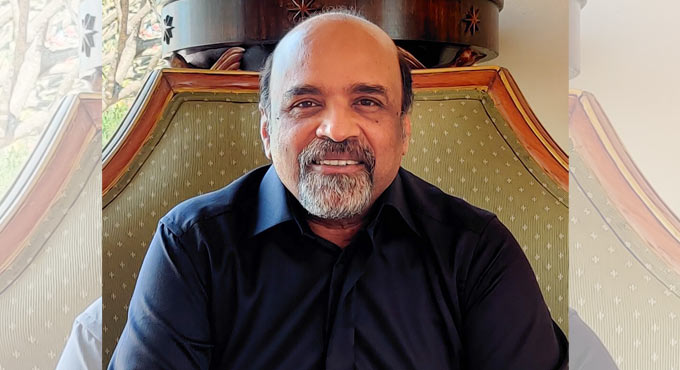Opinion: Live and let live-in
A proper legal framework for securing the rights of live-in partners and their children is needed

If Dushyanta and Shakuntala, the earliest celebrity brand ambassadors of the ancient ‘Gandharva’ form of marriage, were to time travel to present-day India, they might face social disapproval or even ostracisation. Because they were the modern-day equivalent of a live-in couple. The idea of a couple living together without marriage is frowned upon by many in India who see it as an immoral act and an affront to cultural values.
However, not many would know that ‘Gandharva Vivaha’ was one of the eight accepted classical types of Hindu marriage and Vedic texts reveal that it was one of the common forms of marriage in the Rig Vedic period. It allowed man and woman to live together with mutual consent, consummate their relationship without any religious ceremonies or consent from parents. Friendship and mutual understanding formed the basis of their coming together and not the social acceptance.
“The marriage of a desiring woman with a desiring man, without religious ceremonies, is the best marriage,” says sage Kanva, the foster-father of Shakuntala.
Inviolable Right
The recent debate on live-in relationships and the contradictory rulings given by judges of various high courts once again brought focus on an issue that is taboo in conservative societies.
The idea of a Nanny state dishing out morality lessons to people is anathema to mature and evolved democracies. The right of adult individuals to choose their partners and decide on the nature of their relationship is inviolable. It must be seen as being integral to the right to life and liberty.
While hearing a petition by a runaway live-in couple seeking protection, a judge of the Punjab and Haryana court ruled that the live-in relationships are socially and morally unacceptable. However, another bench of the same court clarified that such relationships cannot be called illegal, though it may not be socially acceptable among some sections, and that such couples are entitled to equal protection of laws as any other citizen. In another recent ruling, the Rajasthan High Court held that personal life and liberty under Article 21 must be protected irrespective of the fact that relationship between two major individuals may be termed as “immoral and unsocial.”
It would be a travesty of justice if protection cannot be given to couples who have opted to live together outside the framework of formal marriage.
Legal Vacuum
Though the Supreme Court had in the past passed several landmark judgements upholding the right to choose one’s life partner without the need for social approval, there is a legal vacuum as regards the rights of parties who cohabit informally. There is no law to ensure the protection of rights and commitments for the parties in a live-in relationship, and for the status of children born to such couples.
Informal cohabitation, like marriage, creates its own set of vulnerabilities due to divisions of labour that leave one party, usually the woman and her child, in greater need of financial support when the relationship ends. The law provides ways to address these vulnerabilities in marriages through the provision of rights to maintenance or inheritance, but the needs of informal cohabitants are left to the discretion of judges, without any legal framework to guide them.
However, for the first time, the Protection of Women from Domestic Violence Act, 2005, extended certain remedies to “relationships in the nature of marriage”. Though the Act does not categorically define a live-in relationship, it has left it to the courts to interpret. In several rulings in the past, the Supreme Court conferred to a woman in a live-in relationship the right to claim maintenance under Section 125 of the Code of Criminal Procedure.
The apex court had also stated that if a man and a woman “lived like husband and wife” for a long period and had children, the judiciary would presume that the two were married. It also clarified that the children born of parents in a live-in relationship could not be called illegitimate, but they will not have any claim upon Hindu ancestral coparcenary property.
However, one of the main concerns which remains unclear is what length of time of cohabitation will enable the person to be qualified as a domestic partner. It is necessary to statutorily make a fixed time or make a differentiation between a “walk-in walk-out live-in relationship” and a live-in relationship which will make a person qualify for succession rights.
Picture of Paradox
In a country where the horrors of ‘honour killings’ haunt the couples who defy the caste and community barriers, it is ironic that a live-in relationship is branded as a violation of traditions and cultural values. Marriage is widely seen as life-long commitment, while live-ins as an abdication of responsibilities.
In many countries, there is a legal recognition of prenuptial agreements, cohabitation, civil union and domestic partnership. But, in India, live-in partners face a plethora of problems including difficulties in having joint accounts, insurance and visas. There is no specific law about live-in relationships nor is it recognised by the Hindu Marriage Act, 1955.
In June 2018, the Central Adoption Resource Authority barred couples in a live-in relationship from adopting a child, after its Steering Committee held that cohabitation without marriage is not considered a stable family in India.
Partners in a live-in relationship do not enjoy the right of inheritance to the property of their partner. The Hindu Succession Act, 1956, does not specify the succession rights of the partners in a live-in relationship.
Statutory Provisions
Given the rigid social mores, there is a need for a proper legal framework for securing the succession rights of live-in partners in India. At present, the legal position regarding succession rights in live-in relationships is quite unclear. It is necessary that there should be a proper legal framework to remove the confusions and ambiguities in the current law.
There is a need to expand the definition of family to include “committed domestic partners”. On their part, the State governments can make appropriate legislation so that the couples who are unmarried and staying together for long can get certain social benefits like inheritance rights.
(The author is a senior journalist based in Hyderabad)
Related News
-
Boy attempts suicide at sports school
20 mins ago -
Adilabad farmers shoot selfie-videos to Rahul Gandhi, Governor seeking Rythu Bharosa benefit
37 mins ago -
Karimnagar new mayor takes charge
41 mins ago -
Tax revenue growth decelerates under Congress rule in Telangana, raises fiscal concerns
47 mins ago -
Controversy surrounding infant’s death and caste discrimination continues in Nagarkurnool
51 mins ago -
Ferrari crashes into multiple vehicles at Jubilee Hills, several injured
58 mins ago -
TG GCET Class V exam delayed due to question paper mix-up in Gadwal
1 hour ago -
Revanth Reddy turned Telangana into ATM for AICC: KTR
1 hour ago




